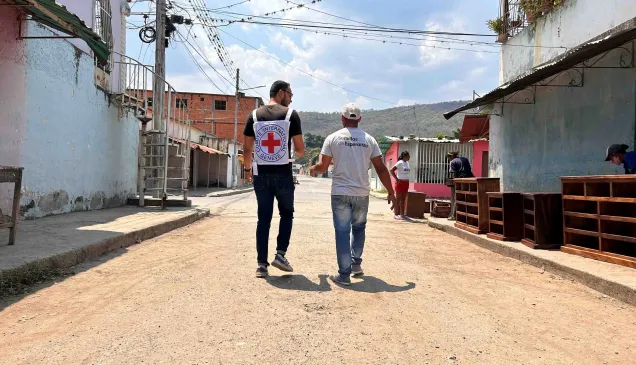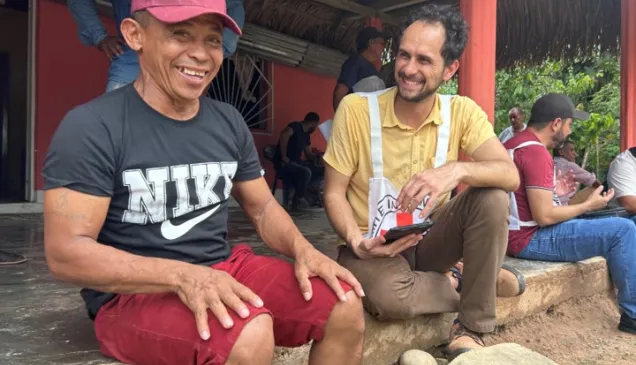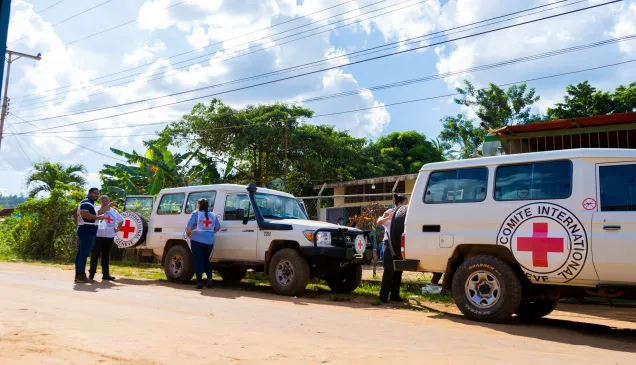Venezuela: Medical equipment – a matter of life and death
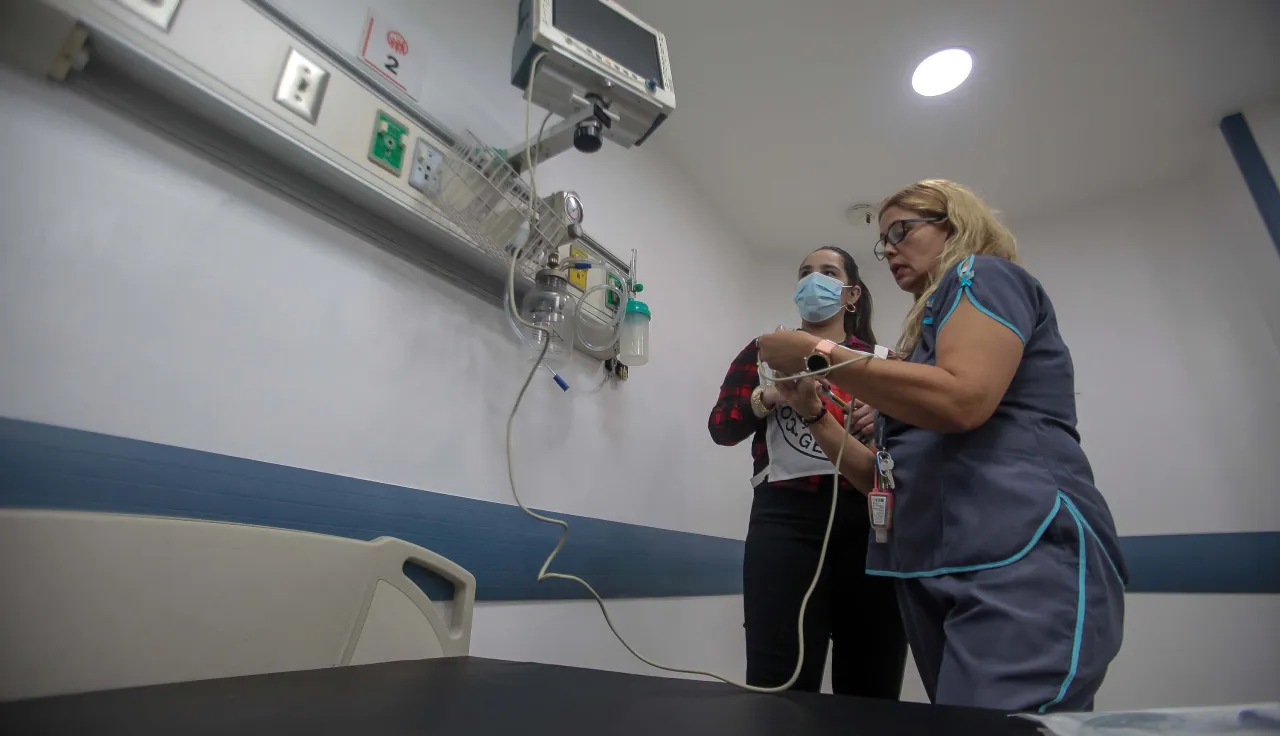
Biomedical equipment plays an essential role in health care. No X-rays or CT scans means no diagnoses. No ventilators or catheters means no intensive care. So at the ICRC we put a lot of effort into making sure this equipment works properly at the health facilities we support.
The ICRC ran a biomedical engineering programme at a number of Venezuelan health facilities from 2019 to 2024, aimed at improving health care and medical treatment, and providing preventive and emergency care. This involved donating and repairing medical equipment that plays an essential role in caring for patients, from admission to discharge. The equipment also ensures better working conditions for staff.
In Venezuela, the ICRC provides this service in conjunction with the health authorities, health professionals, administrators, other staff and the communities concerned. The aim is to ensure that patients can obtain health care.
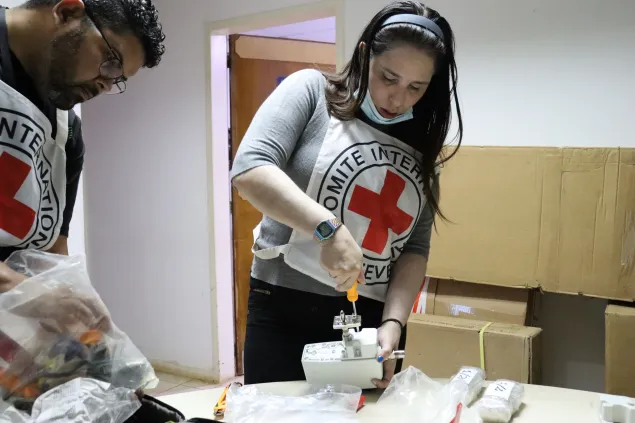
The biomedical engineer and another member of ICRC staff assemble medical equipment donated to El Callao Hospital in Bolívar state.
We provided extensive support to the health facilities concerned. Between 2019 and the first quarter of 2024, the ICRC donated 812 items of equipment and repaired 417 at a number of health facilities, mainly in Caracas, Miranda, Aragua, Bolívar, Apure, Táchira and Zulia. These donations and repairs played a vital role in ensuring that 1,021,036 people could obtain treatment in emergency departments and primary health-care facilities, preventing long-term effects or death.
The main equipment donated included X-ray equipment, systems for monitoring patients’ vital signs, haemoglobinometers, glucometers (for measuring blood sugar levels), dermatomes (used when carrying out skin grafts for burns patients), electrocardiographs (for measuring heart activity) and oxygen concentrators (to treat patients with breathing difficulties), along with spare parts and consumables.
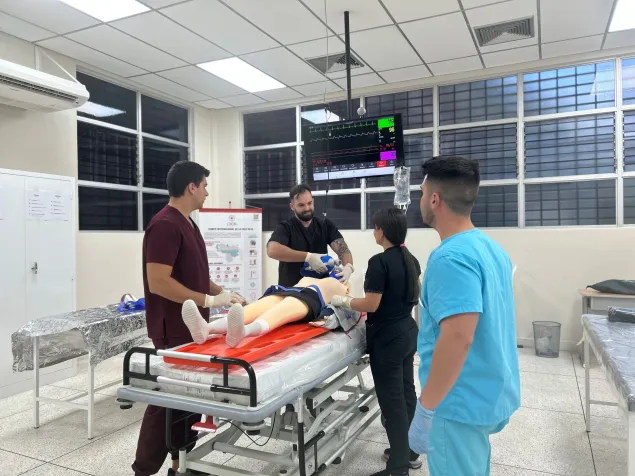
Biomedical equipment ensures better care and treatment. Having it work properly can make the difference between life and death. Students use a stretcher and a manikin donated for the simulation room at Carabobo University’s Aragua Centre.
The ICRC mainly works in emergency departments, which need functioning basic equipment in order to provide treatment and care. For instance, if a patient arrives with a bullet wound, it will probably be necessary to aspirate secretions that are obstructing their breathing. And if the bullet has damaged a lung, an oxygen concentrator will be required, to administer oxygen. Staff will need to measure the patient’s vital signs using monitoring equipment and may have to take X-rays to locate the bullet. “If the patient is to survive, all these procedures must take place simultaneously, within just a few minutes. So it’s important to have all the equipment available and in working order,” explains ICRC biomedical engineer Marisol Bracamonte, who led the programme.
Working in conjunction with the Venezuelan health authorities, the ICRC expanded the capacity of the health facilities it supports to maintain this equipment themselves, ensuring that the biomedical programme would bring lasting benefits. For instance, a new biomedical workshop at Ruíz y Páez Hospital (Bolivar state) is enabling staff to carry out repairs and maintenance themselves.
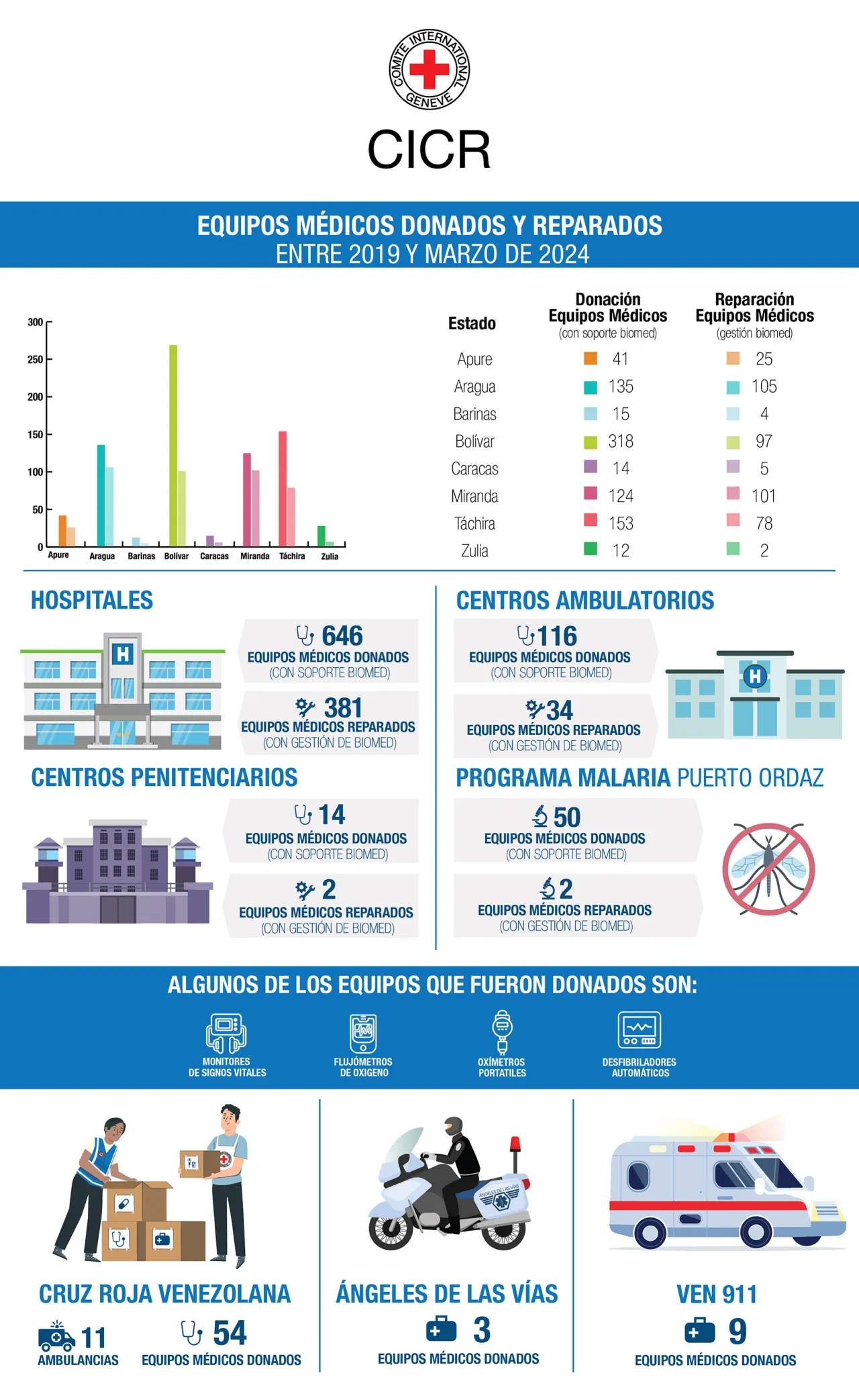
95% of the donated equipment is currently operating
Training
If donating this equipment is to really benefit patients, health personnel must know how to use and maintain it correctly. From 2023 onwards, the biomedical engineering programme therefore included training the personnel of each health facility who carry out repairs and maintenance. For the programme to be sustainable, staff must be able to repair and maintain the equipment, which means they need basic training in biomedical engineering.
The ICRC teamed up with the Venezuelan Electromedical and Biomedical Engineering Society (Sociedad Venezolana de Electromedicina e Ingeniería Biomédica, SOVEMIB) to draw up a training programme covering the technical and ethical aspects of using this equipment. The technical side focused on performing preventive maintenance, detecting frequently-occurring faults and extending the service life of the equipment. A total of 190 biomedical staff from health facilities across the country underwent training. They now have a better understanding of how to use this equipment, and that translates into better patient care.
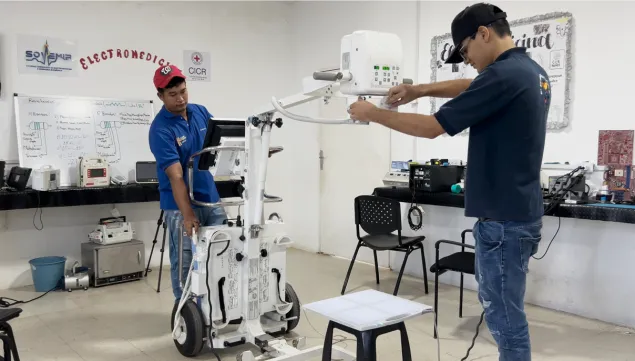
Xavier and Daniel are medical equipment technicians employed in the workshop at Ruiz y Páez Hospital. Here, they are operating one of the pieces of equipment donated by the ICRC.
After completing their training, staff were able to reactivate equipment that had been standing idle because no-one knew how to operate it. Marisol Bracamonte explains, “In many cases, this training allowed electromedical personnel to repair and use equipment that had been out of service purely for lack of knowledge as to how to use it.” This has made a big difference to ICRC-supported health facilities.
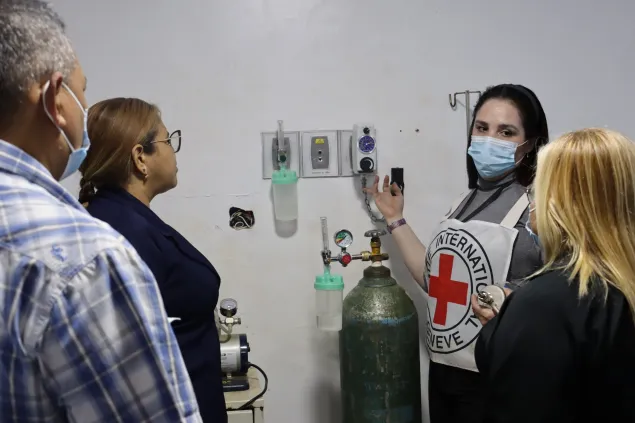
El Callao Hospital: A member of ICRC staff explains how to maintain the medical gas system.
COVID: Responding to the emergency
During the COVID 19 pandemic, the biomedical engineering programme supported health facilities that were caring for people affected by the virus. This included donating and repairing such essential equipment as oximeters, X-ray machines, manometers, flowmeters, respirators, anaesthesia machines and mechanical ventilators.
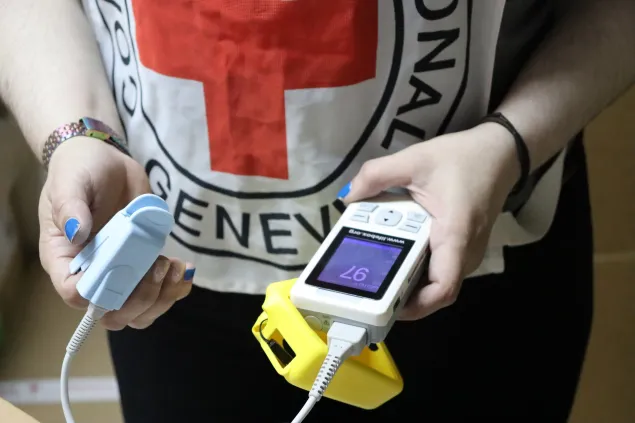
A member of ICRC personnel tests an oximeter.
During this period, the ICRC donated equipment to the following hospitals: Domingo Luciani (Caracas), Central de Maracay (Aragua), Ruiz y Páez (Bolívar) and Central de San Cristóbal (Táchira). We provided 68 flowmeters, 23 double flowmeters, 31 nebulizers, 15 oxygen concentrators, 12 infrared thermometers, 6 surgical aspirators, 2 autoclaves, 23 aspirators, 20 manometers and other equipment.
This equipment played an essential role in caring for over 50,000 patients, ensuring that they received a correct diagnosis, effective treatment and safe care.
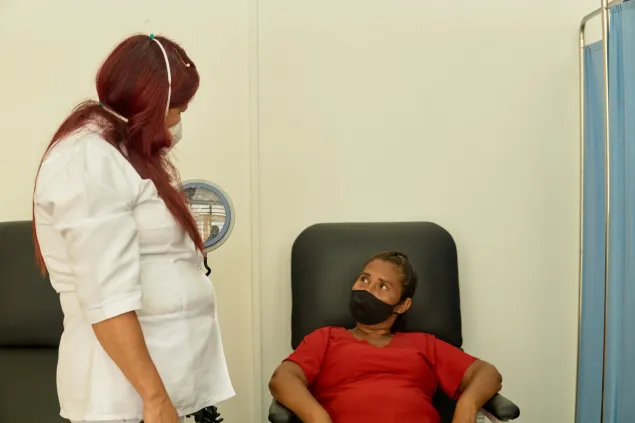
Hospital Ruiz y Páez, Bolívar state. A nurse speaks to a patient in the triage room that the ICRC opened in 2022.
Cooperation with other ICRC-supported facilities
The ICRC’s work is multidisciplinary, and the biomedical engineering programme also donated or repaired essential equipment for three prisons, Santa Ana, Fénix Lara and Jesús Viloria. We donated 14 pieces of equipment, helping these facilities provide dignified care for their inmates.
The ICRC also supported the work of the Venezuelan Red Cross, by donating such equipment as patient monitors, portable oximeters (to measure the oxygen saturation of patients’ blood) and ambulances.
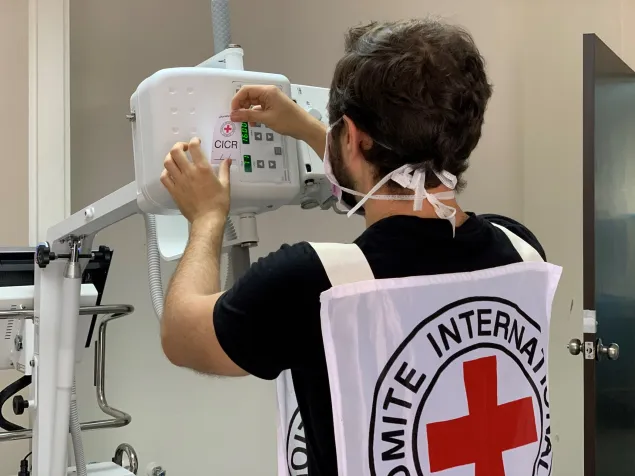
An ICRC employee finishes installing a piece of equipment that the organization had donated to Domingo Luciani Hospital, Caracas.
The biomedical engineering programme ended in March 2024 with the last of the planned training sessions. Over a period of more than four years, the programme enhanced treatment and care and boosted the capabilities of many Venezuelan health personnel in the ICRC’s priority regions.
Personnel from various health facilities talk about their experiences in the video below.

